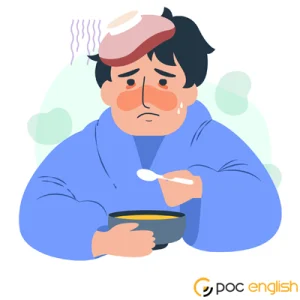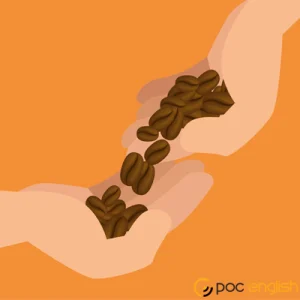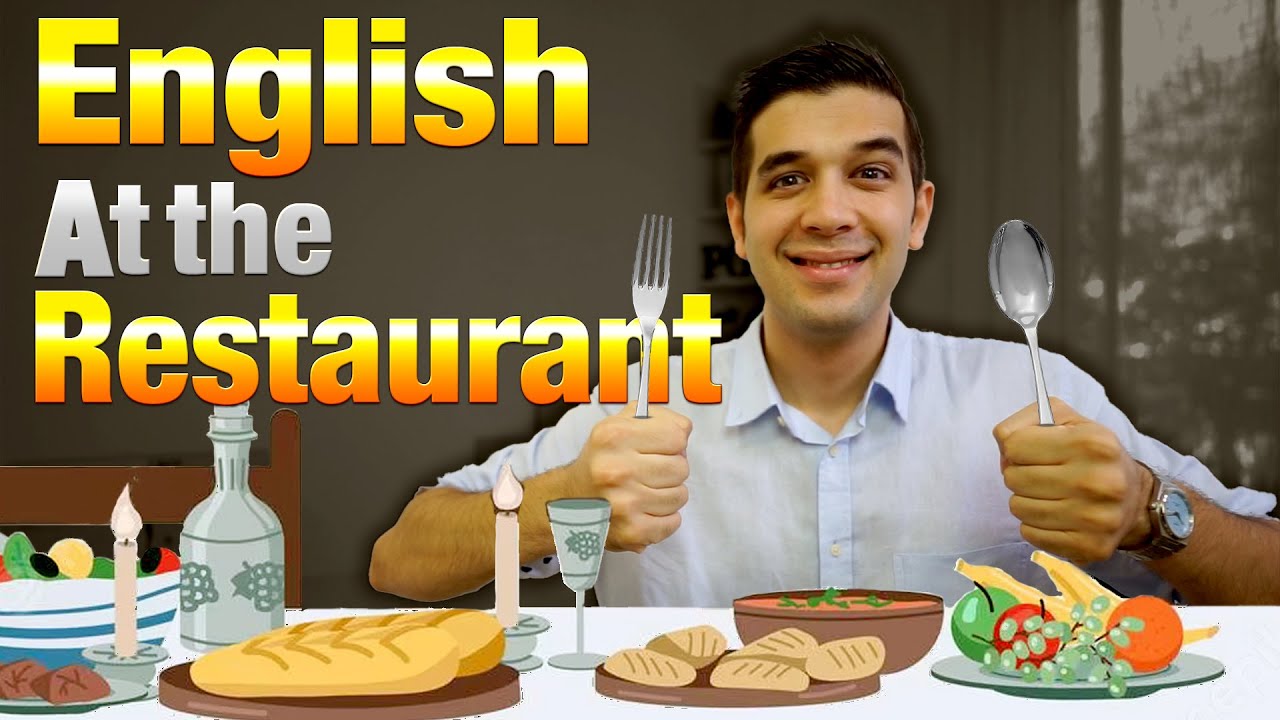Introducing advanced idioms in English can be an engaging and enlightening way to delve deeper into the richness of the English language. While idioms might initially seem like puzzles, exploring their meanings through stories, playful activities, or relatable examples can make learning them enjoyable and memorable.
We usually use simple English in our daily conversations. It might be quite all right. However, English native speakers sometimes use some phrasal verbs and idioms which have a deeper meaning. So, if we want to become like more professional speakers, it is necessary to use such phrases and idioms in our daily talks.
In this article we are going to learn some advanced phrases in English and their meaning.
Advanced phrasal verbs: Talking about your relationships
To bump into:
Meaning: To meet someone by chance, without planning to meet them.
Example: I bumped into an old school friend the other day.
To get on:
Meaning: to make progress with something.
Example: How are you getting on with your homework? Actually not very well. I have a lot to do.
stumbled across:
Meaning: To find by chance (to come across).
Example: I stumbled across my old notebooks from Primary school the other day, in the garage.
To hook up: (Of advanced phrases in English)
Meaning: to have a casual relationship with somebody
Example: I hooked up with a beautiful girl the other night at the club.
To drift apart:
Meaning: To gradually become less intimate or friendly.
Example: Jack and I were intimate friends, but recently we have drifted apart. We do not see eye to eye anymore.
To split up:
Meaning: To end a relationship or partnership
Example: After a long argument, Elizabeth and her boyfriend split up last week.
Learn more: What are the most common physical appearance vocabulary?
To put up with: (Of advanced phrasal verbs in English)
Meaning: To accept someone or something that is unpleasant
Example: He is always complaining about anything but his parents put up with her all the time.
To mess somebody around:
Meaning: To treat someone in a very bad way
Example: He really messed me around when he cheated on me.
To figure out:
Meaning: To find a solution (to work out a solution).
Example: It is a very hard issue, and I can’t figure out what to do.
To deal with: (Of advanced idioms in English)
Meaning: To do something about (a person or thing that causes a problem or difficult situation).
Example: It was a very hard situation but I could deal with it very well.
It’s worth mentioning that there are phrasal verbs for problem solving in English. If you are interested in learning about these phrases, read the article about phrases for problem solving on our website.
To grapple with:
Meaning: To try and solve a difficult problem.
Example: I started making a study plan yesterday, but it is so difficult, I am still grappling with it.
Learn more: What are the idioms about healthy lifestyle ?
Now it’s time to use these phrases in a conversation, isn’t it?
The first scene using advanced idioms in English
A: A: Hi, what are you up to?
B: Not bad, I bumped into one of my classmates at university the other month. His name is Sara. We hooked up at first. After a warm conversation, we decided to see each other more.
A: Wow. It’s so great. You finally found someone to go out with.
B: Not actually. We gradually drifted apart. The relationship was not so serious for her. I think she just messed me around.
A: And you just put up with her?
B: Firstly, yes. But I figured out what was going on. Finally, we split up.
A: So, you could deal with the situation.
B: No. This is not the end of the story. Last night I stumbled across some of our photos together. I think I still love her. I am still grappling with my depression.
A: Really?! Come on dude. Get it over. She is gone.
Let’s continue with some other beautiful phrasal verbs and advanced idioms in English:
To stick up for: (Of advanced idioms in English)
Meaning: To support or defend somebody/yourself/something.
Example: While I failed the exam my father stuck up for me seriously.
To harp on about:
Meaning: To talk or complain about something many times.
Example: Can you stop harping on about how great Miranda looked at the party!?
To build (something or someone) up:
Meaning: To talk about someone or something in a very positive way
Example: They’ve built her up to be something that she isn’t.
To build up someone’s hopes: (Of advanced idioms in English)
Meaning: to make someone think that something good is going to happen when in fact it is not
Example: I don’t want to build up her hopes if he’s not coming back.
To pig out: (Of advanced idioms in English)
Meaning: To eat a lot of food
Example: I am on a diet, but I pigged out last night.
Learn more: Get familiar with the idioms about money in English
To eat up:
Meaning: To eat everything.
Example: My father has diabetes and he shouldn’t eat up.
To pick at something:
Meaning: To eat only small amounts of a meal because you do not feel hungry
Example: Are you feeling all right? You’ve been picking at your food for ages.
To bolt/wolf down:
Meaning: To eat everything quickly
Example: I wolfed down my breakfast this morning because I had no time.
Learn more: Read the article about the idioms with colors
The second scene using advanced idioms in English
In this section we learn have can we use these advanced phrases in a conversation:
A: Your ex-girlfriend looked amazing last night at the party.
B: Would you please stop harping up about her?
A: It seems you are jealous. Her new boyfriend was so awesome as well.
B: You are building her up so much. He was pigging out all the time at the party. I saw him when he bolted down a lot of meat at once.
A: Really? I wish I could. But I wasn’t so hungry and just picking at those delicious foods.
B: Yeah. I can understand you. You eat up and never say no to any kind of food.
A: But I still think you shouldn’t split up with her!
B: Would you please stick up for me, your best friend, instead of talking about them??
A: Sorry dude. I can build your hope up. I want you to face the reality.
B: (so angry)
Learn more: Get familiar with the funny idioms in English
To beat around the bush:
Meaning: Not speaking directly
Example: He wanted to ask for a raise, but when the moment came, he got nervous and beat around the bush instead.
To bite off more than you can chew:
Meaning: Taking a lot of responsibilities you can’t handle
Example: I don’t know why you volunteered to finish the project by tomorrow. I think you bit off more than you could chew.
Blessing in disguise:
Meaning: Something that seems bad but it turns out good
Example: That incident was a blessing in disguise, I got a promotion in my career.
To give the benefit of the doubt:
Meaning: To believe someone’s statement without any proof.
To kill two birds with one stone:
Meaning: To do two tasks with one action
Example: If I listen to American music to learn English while I do my math homework, I can kill two birds with one stone!
To let the cat out of the bag:
Meaning: To reveal information that was hidden
Example: In the meeting, I had to let the cat out of the bag. All members wanted to know about the detail of the project.
Learn more
Learning change idioms in English is super fun because it adds color and excitement to your language skills! Idioms are like special phrases that have hidden meanings beyond their literal words. Imagine you’re chatting with friends and want to express that something unexpected happened. Instead of saying “it was surprising,” you could use an idiom like “it took me by surprise” or “it caught me off guard.” These idioms make your language more lively and interesting, and they help you connect with others who understand them. So, by learning change idioms, you’re not only improving your vocabulary but also becoming a language pro who can express yourself in cool and creative ways!
Learn about the most common synonyms and idioms related to change in this article:
→ What are the idioms related to change in English? ←
To miss the boat:
Meaning: To miss a chance or an opportunity.
Example: It was a great opportunity and I shouldn’t miss the boat.
Take it with a grain of salt:
Meaning: To not completely believe something that you are told, because you think it is unlikely to be true
Example: I had to take everything she said with a grain of salt, because she tends to exaggerate.
To be up in the air:
Meaning: To be uncertain or unsure.
Example: When I was applying to different universities I was up in the air about my choices.
To stab someone in the back:
Meaning: To betray someone who was close to you.
Example: Jack and I used to be so close but he stabbed me in the back by lying to me several times.
To lose your touch:
Meaning: To lose the ability you had in the past
Example: In the past, he used to be a professional football player but he has lost his touch.
To sit tight:
Meaning: remain firmly in one’s place, refrain from taking action or changing one’s mind.
Example: After taking the exam I had to sit tight for the result.
To face the music:
Meaning: To face the consequence of your action or reality
Example: After the horrible mistake of the manager the company had to face the music in the market.
To get over sth/sb:
Meaning: To forget about someone or something.
Example: After I broke up with my ex-girlfriend it was too hard for me to get over her.
Crunch time:
Meaning: A period when the pressure to succeed is great, often toward the end of an undertaking.
Example: We were experiencing a real crunch time at the final stages of the project
To get out of hand:
Meaning: To get out of control.
Example: The party got out of hand when more people showed up.
To get out of your system:
Meaning: You get rid of a wish or emotion, especially a negative one, by allowing yourself to express it.
Example: I was so upset due to my problems at work but I decided to get out of my system by talking about it with my friends.
To hang in there:
Meaning: To wait or be patient
Example: The boss was too late for the meeting but we had to hang in there for an hour.
To throw caution to the wind:
Meaning: To take a risk
Example: I know I haven’t trained much for the marathon, but I’m going to throw caution to the wind and run anyway.
Call it a day:
Meaning: Stop working
Example: We’ve been here for 10 hours; let’s call it a day.
To be on cloud nine:
Meaning: To be very happy
Example: I was on cloud nine when they accepted my job application!
To be under the weather:
Meaning: To be sick or ill
Example: I stayed home from school because I was feeling under the weather.
To speak of the devil:
Meaning: When someone you were just talking about arrives
Example: Speak of the devil! We were just talking about you!
Ignorance is bliss:
Meaning: Sometimes you’re better off not knowing something.
Example: I wish you hadn’t told me that. Ignorance is bliss.
That ship has sailed:
Meaning: It is too late (a missed opportunity)
Example: I would love to go back to college, but unfortunately, that ship has sailed.
Barking up the wrong tree:
Meaning: Looking for something in the wrong place
Example: The crime was committed by a man, so the police were barking up the wrong tree when they questioned the woman.
On top of the world:
Meaning: Feeling extremely successful, confident and happy
Example: I was just admitted to my dream university; I am on top of the world.
Full of the joys of spring:
Meaning: To be extremely happy, cheerful, or full of enthusiasm.
Example: She scored 8.0 in the IELTS and is full of the joys of spring.
To Kick the bucket:
Meaning: To die or pass away.
Example: My grandfather kicked the bucket last year.
Like death warmed up:
Meaning: looking extremely ill or unhealthy.
Example: Since last summer my grandfather has been like death warmed up.
Egg on one’s face:
Meaning: To be embarrassed or humiliated by making a mistake or being proven wrong.
Example: After failing in his example, my brother had eggs on his face.
To eat humble pie:
Meaning: To admit one’s mistake or defeat and show humility or remorse
Example: After making that mistake he had to eat humble pie.
To spill the beans/tea:
Meaning: To reveal a secret or disclose information that was meant to be kept confidential
Example: He is not a good secret keeper; he spilled the beans in the crowd.
A bad egg:
Meaning: A person who is dishonest or untrustworthy.
Example: I can’t trust Jack anymore; he is a bad egg.
One’s bread and butter:
Meaning: a person’s primary source of income or livelihood.
Example: Teaching English is my bread and butter.
Second to none (Of advanced idioms in English):
Meaning: To be the winner all the time, the best.
Example: Leo Messi is second to none in the football world.
Two peas in a pod:
Meaning: Be very similar
Example: The two sisters are like peas in a pod.
Jack of all trades:
Meaning: A person who can do many different types of work but who is not necessarily very professional at any of them.
Example: My father is jack of all trades; he can deal with any task at home.
Fair-weather friend:
Meaning: A person who is only a friend in a pleasant or profitable situation.
Example: Jenny is just a fair-weather friend; I can’t rely on her in hard situations.
The salt of the earth:
Meaning: A person or people of great kindness, reliability or honesty even in a hard situation.
Example: Jack is the salt of the earth; I can borrow money from her whenever I’m in dire need.
Wet blanket:
Meaning: A person who spoils other people’s fun by failing to join in with or by disapproving of their activities.
Example: We shouldn’t have invited him to the party; he is just a wet blanket.
To have other/bigger fish to fry:
Meaning: To have more important tasks to do.
Example: I couldn’t come to the party; I had other/bigger fish to fry.
To have ants in one’s pants:
Meaning: To be nervous
Example: I had ants in my pants before my math exam but it turned out so easy.
To smell a rat:
Meaning: To suspect or sense that something is wrong or suspicious.
Example: I smelled a rat in the deal so I canceled it.
To hold one’s horses:
Meaning: To be patient, wait, or stop rushing.
Example: I was so excited before the ceremony but I had to hold my horse.
To drop like flies:
Meaning: To rapidly decrease in number or weaken significantly.
Example: During the Covid 19 people were dropping like flies and hospitals were full of patients.
To take the bull by the horns:
Meaning: To confront a difficult or challenging situation directly and decisively.
Example: I face a serious problem at work but I decided to take the bull by the horns.
Eager beaver:
Meaning: To be so enthusiastic, energetic, and eager to work or participate.
Example: At first I was so reluctant but after watching POC English videos I’m eager beaver for learning English.
green with envy:
Meaning: Very jealous or envious.
Example: She was green with envy when she saw her friend’s new house.
To hit it off (with someone):
Meaning: To have an instant connection or rapport with someone.
Example: After a short conversation I hit it off with Rosy; We are good friends now.
In the final section of this article you can test yourself by a short quiz:
Advanced idioms in English lesson : Quiz
I was so surprised when I …… my lovely notebook in my archive.
⚪️Stumbled across
⚪️Hooked up
⚪️Bump into
I was …. that problem for a long time but I couldn’t find a solution.
⚪️Grappling with
⚪️Dealing with
⚪️Figuring out
My father is allergic to spicy food so ….
⚪️He doesn’t eat up
⚪️He picks at food
⚪️Bolts down his food


















